Connecting to the future:Driven by Trust-based Relationships with Colleagues and Regional Communities
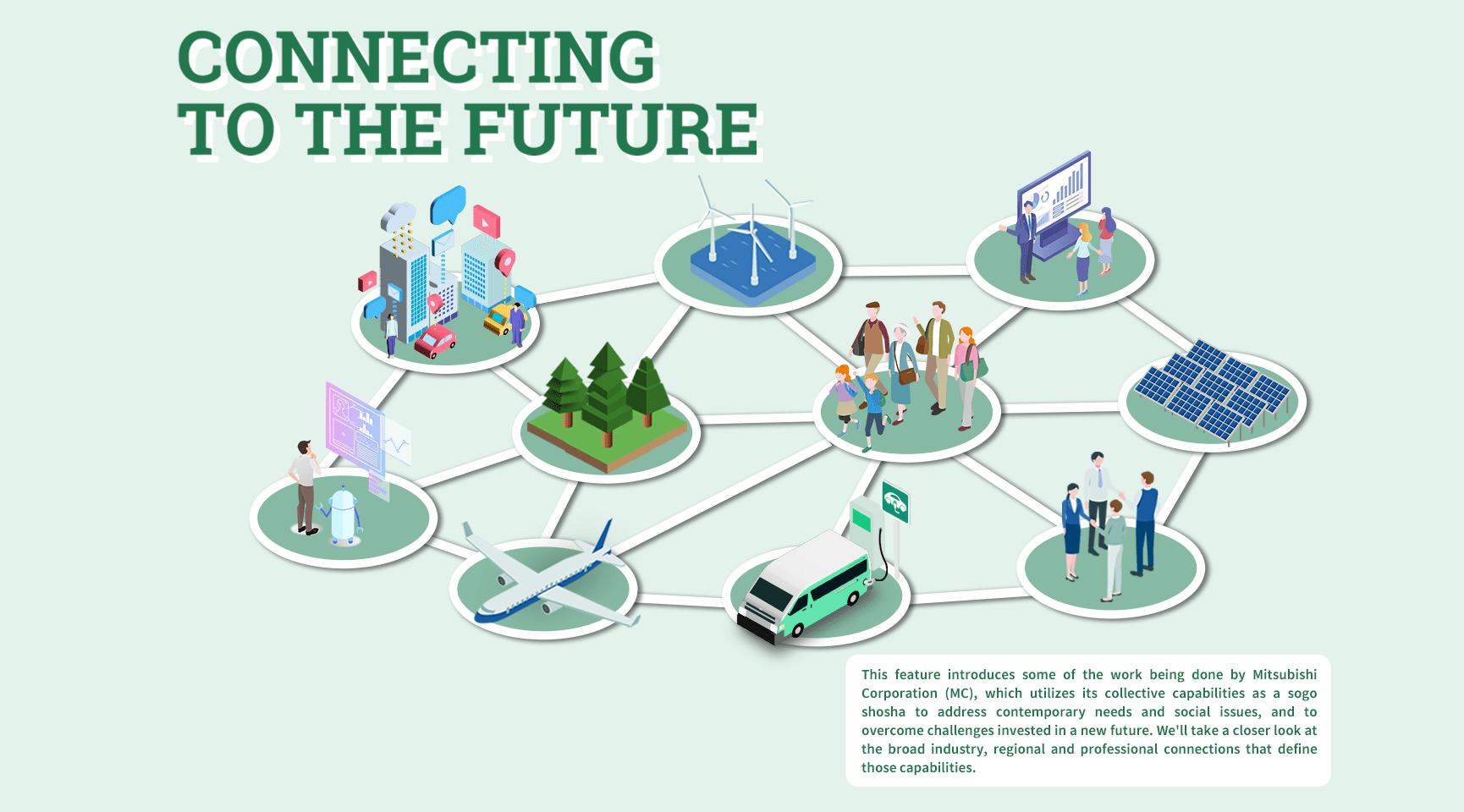
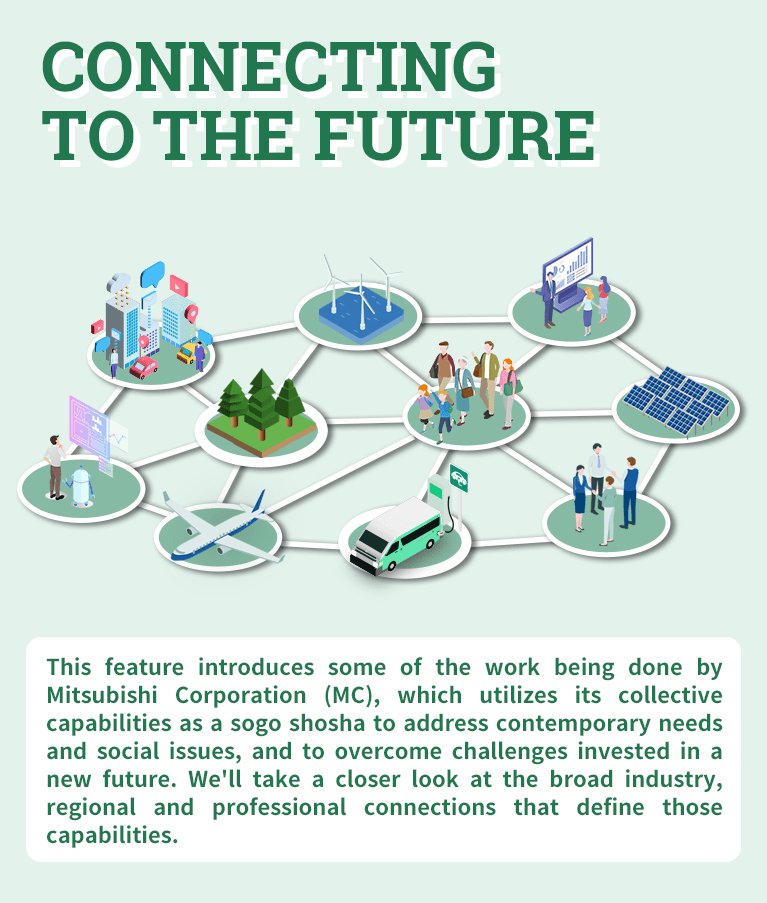
Building the Future with Diverse Talent vol.2
Driven by Trust-based Relationships with Colleagues and Regional Communities
— Roundtable Discussion with Members of Mineral Resources Group (first half) —
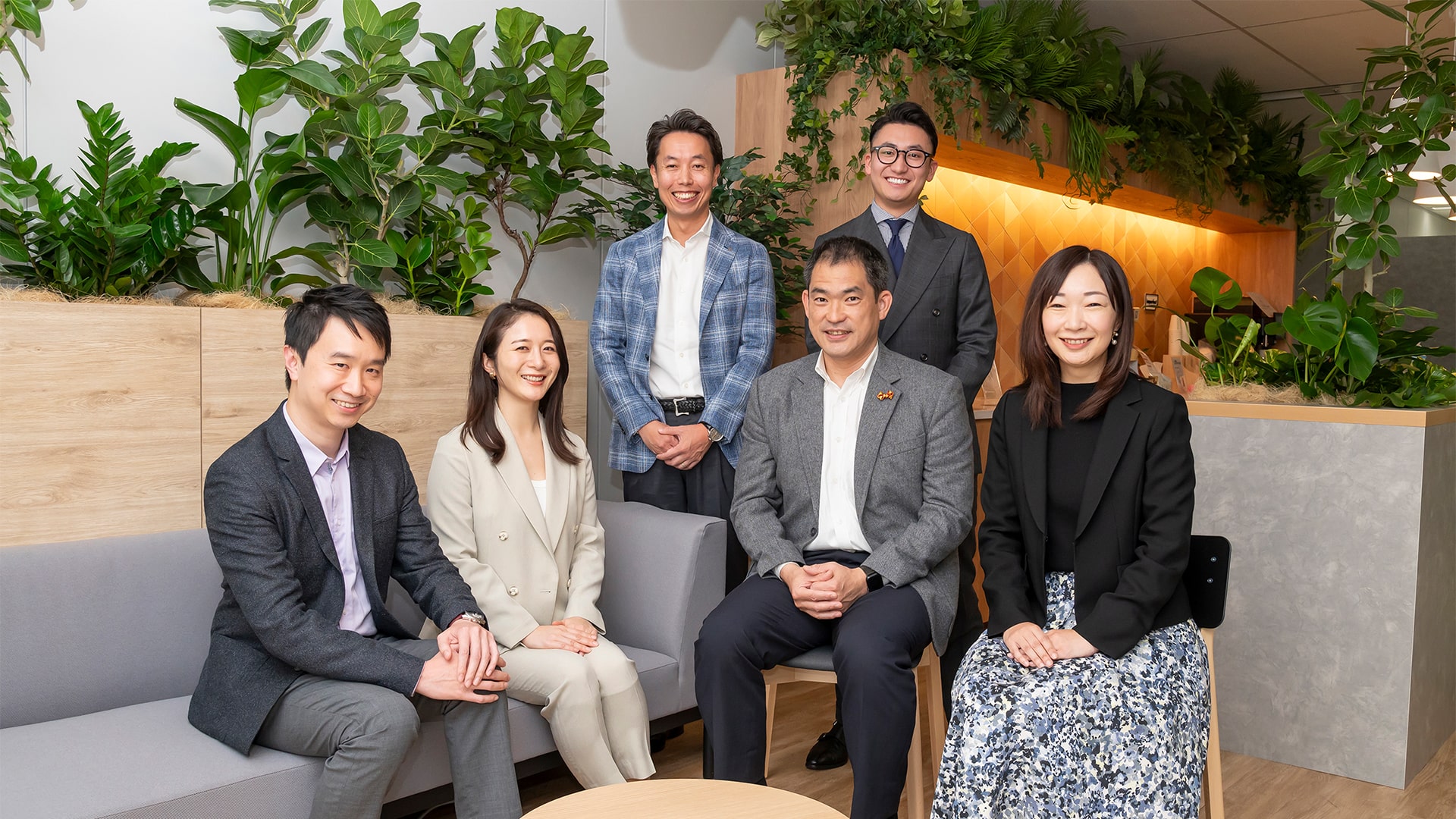
MC is making a commitment to create vibrant, dynamic workforces, which is underpinned by one of the overarching objectives of Midterm Corporate Strategy 2024, namely to maximize the value of its human capital. How are the company's frontline workers approaching their jobs, societal challenges and business partners? In part two of our latest feature, we present the first half of a roundtable discussion with six members of MC's Mineral Resources Group. Interviewer: Kazuhiro Sekine (GLOBE+ Editor in Chief)
- Roundtable Participants
-
Kentaro Kanno (GM, RtM Office, Mineral Resources Trading Div.)
Yusuke Inomata (Deputy GM, Aluminum Dept., Mineral Resources Investment Div.)
Shu Deng (Deputy GM, Business Incubation Unit, Mineral Resources Group CEO Office)
Miho Fujii (Senior Manager, seconded from MC to Mitsubishi Corporation RtM Japan, Battery & Mobility Business Div.)
Akiko Kamachi (Manager, Base Metals Dept., Mineral Resources Investment Div.)
Tomoki Makanae (Strategic Planning & Administration Team/ Metallurgical Coal Team, MDP Dept., Mineral Resources Investment Div.)
- Interviewer
- Kazuhiro Sekine (GLOBE+ Editor in Chief)
Copper, Iron-ore, Aluminum...Delivering Essential Mineral Resources to Japan and the World
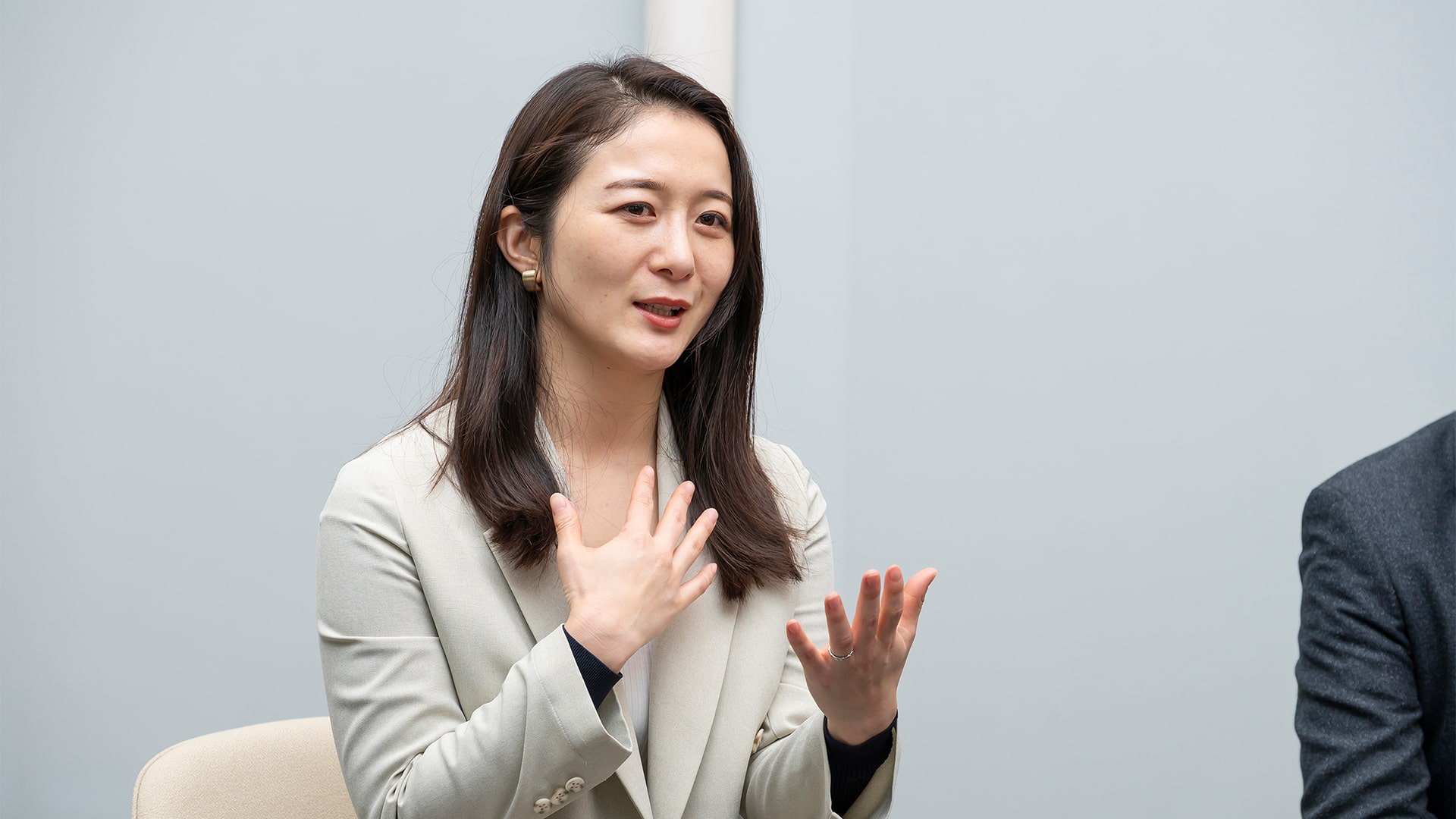
—— I think we can broadly categorize the work done by MC's Mineral Resources Group into the upstream spaces of "investing" and "mining" and downstream "trading" operations. I'd like to begin our discussion by asking those of you involved in the upstream businesses to tell us about your work and careers to date.
Kamachi I work in the Base Metals Department, where I manage three copper-mine assets in Chile and Peru from our offices in Tokyo. My near-term duties include managing the mines' operations, budgets and financial statements, but I also take part in management strategy meetings, where we discuss things like the mines' medium- to long-term expansion plans. I'm now in my ninth year with MC, but I came to this department in June 2023. Prior to that, I was on a two-year secondment to the Antamina coal mine in Peru. As a member of the mine's local finance team, I worked with my native Peruvian colleagues to introduce a new accounting system and otherwise manage the mine's operational budgets and costs. MC also sent me to Spain for a year to study Spanish. I wasn't very proficient in English, so I felt that learning Spanish would give me a unique advantage. Since then, I've grown very fond of Latin America and other Spanish-speaking parts of the world that share a similar culture. After briefly returning to Japan, I was again appointed overseas, this time to Chile as a trainee. I think that my connection to the Spanish language is what led to my current position as manager for Latin America.
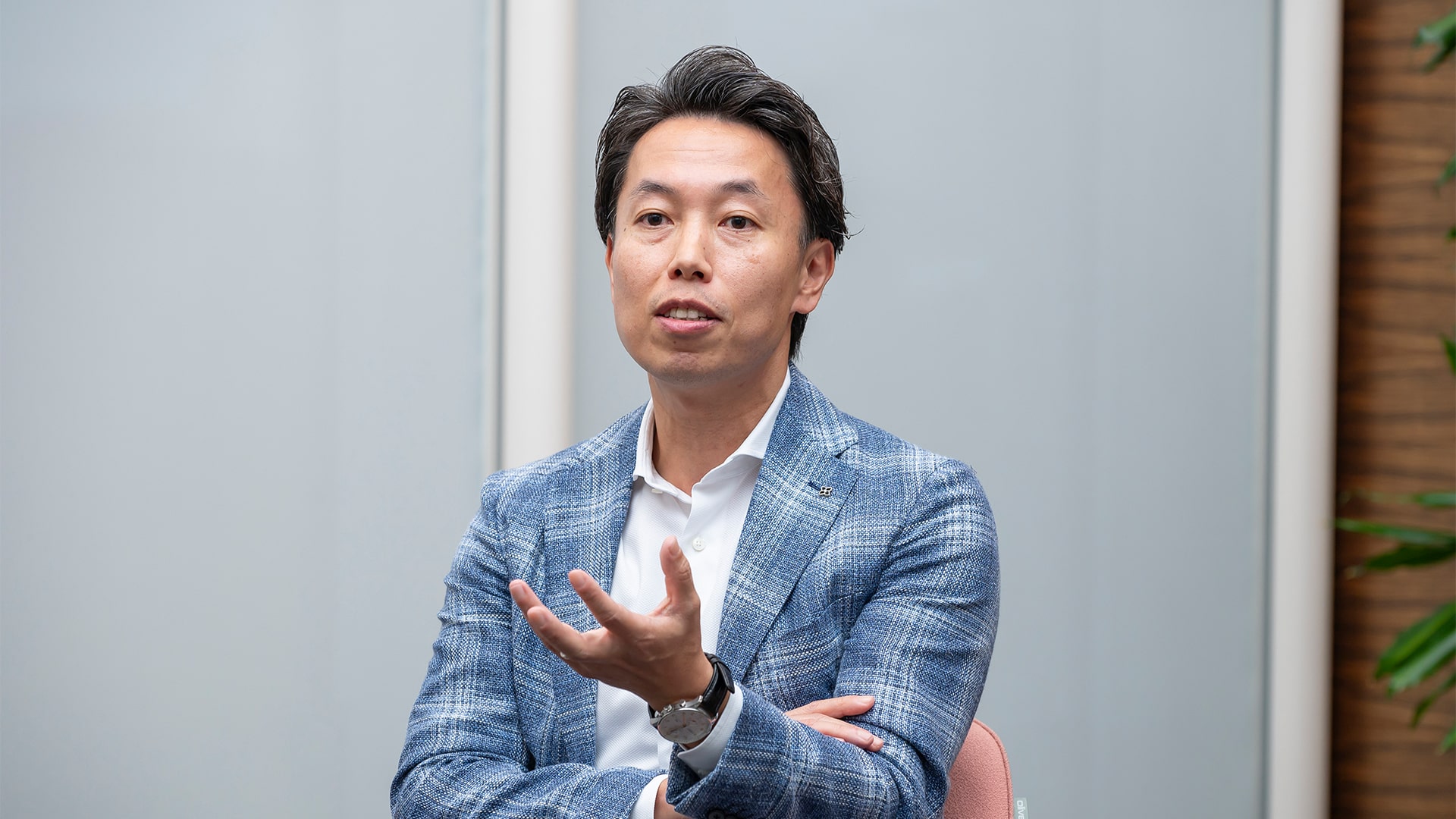
Inomata I work in the Aluminum Department at Tokyo head office. With the world looking to eletrify, global demand is on the rise for aluminum, which is a robust, lightweight and easily recycled mineral resource. The bulk of my work is comprised of business-strategy planning and investments in the aluminum raw material bauxite. Right now, I'm assisting with a bauxite development project in Australia. As a student I majored in development economics, which is a branch of economics that focuses on circumstances in developing countries. I decided to work for a sogo shosha because I thought it would provide me with the right environments to put my education to the test. About two and a half years after joining the company, I was seconded to a majority-owned subsidiary in South Africa, where I was in charge of things like cash-flow management and consolidated budgets and financial statements. I also had a seven-and-a-half-year stint at Mitsubishi Development Pty Ltd., an entity in Australia that's a core part of MC's mineral resources operations. I've gained a lot of experience during my years with MC, including M&As in bauxite and coal for power generation and steelmaking, management planning, and so on.
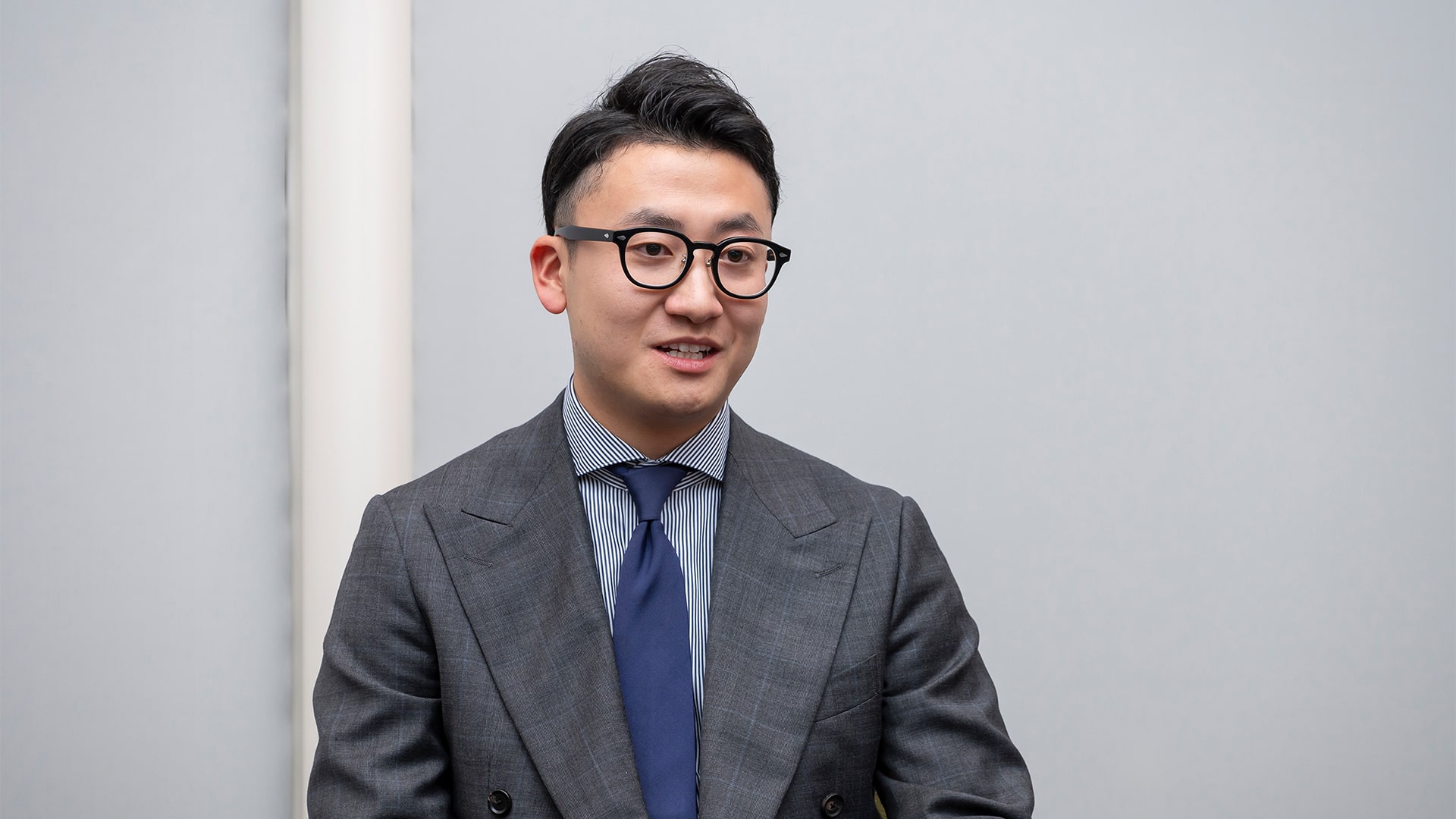
Makanae I joined MC in 2020, and I spent my fist two years in the Group's Administration Department* as a corporate training programme. In August 2022, I was being transferred to the MDP Department. *Administration department training programme is a corporate training programme which the new employees are assigned to the Groups' administration departments for the first two or three years to learn basic accounting and finance skills. Each year, MC appoints roughly 30 young employees to these trainee positions. MDP invests in and manages metallurgical coal business, which is a raw material used to make steel. Every week, I analyze reports from mines to familiarize myself with their operations and by monitoring the operations, we report to Tokyo head office on a monthly basis. Basically, my job is to communicate closely with the corporate departments at MC head office and help ensure everything is being reported smoothly. I haven't been doing this job for long, but I've realized that in mineral resources development, you can't take anything for granted. For instance in MDP's case, we can't assume that things will work out just because we've secured the highest grade of coal or we're managing our operations efficiently. We have a lot of different people doing different jobs in different places, but for everything to come together, we need all of those people to be in sync.
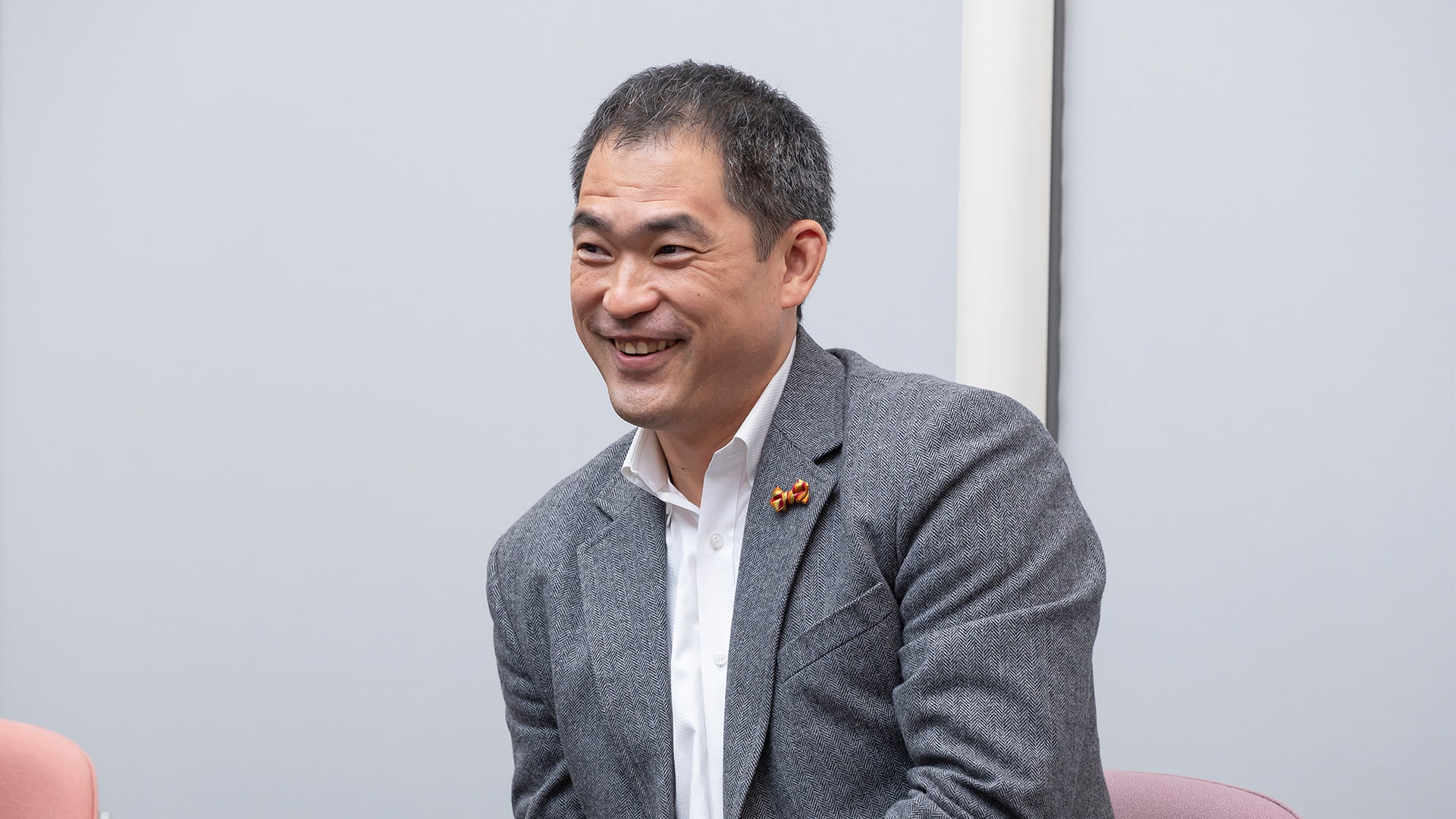
—— Thank you. Now how about the two of you engaged in trade? Can you tell me a little bit about your work and careers thus far?
Kanno Sure. I'm general manager of the RtM Office in Tokyo. RtM International* is an MC subsidiary that functions as the company's control tower in mineral resources trading. It was established in 2013. The RtM stands for "Resource to Market," which is an apt name for the subsidiary considering its role in connecting suppliers and users. Its mission is to ensure global supply stability of high value-added mineral resources. *Mitsubishi Corporation RtM International Pte. Ltd. RtM International's headquarters is located in Singapore, but it also has offices in Tokyo, Shanghai and Delhi. Its mineral-resources trading network has a wide global reach, spanning major cities and countries like New York, London, India, Thailand, Indonesia and so on. The RtM Office is responsible for nurturing solidarity among the roughly 600 employees engaged in this worldwide trading network, as well as keeping the RtM group and MC head office closely connected. Before joining the RtM Office, I had a four-year assignment in Shanghai (from 2019 to 2022), where I oversaw the establishment and running of RtM China. Before that, I spent four years in Delhi promoting RtM's Indian operations. When I was in my 30s, I worked for six years in MC's metallurgical coal projects in Australia, four in Sydney and two in Brisbane. I've faced a lot of challenges and setbacks in my career, but I've experienced my fair share of successes as well.
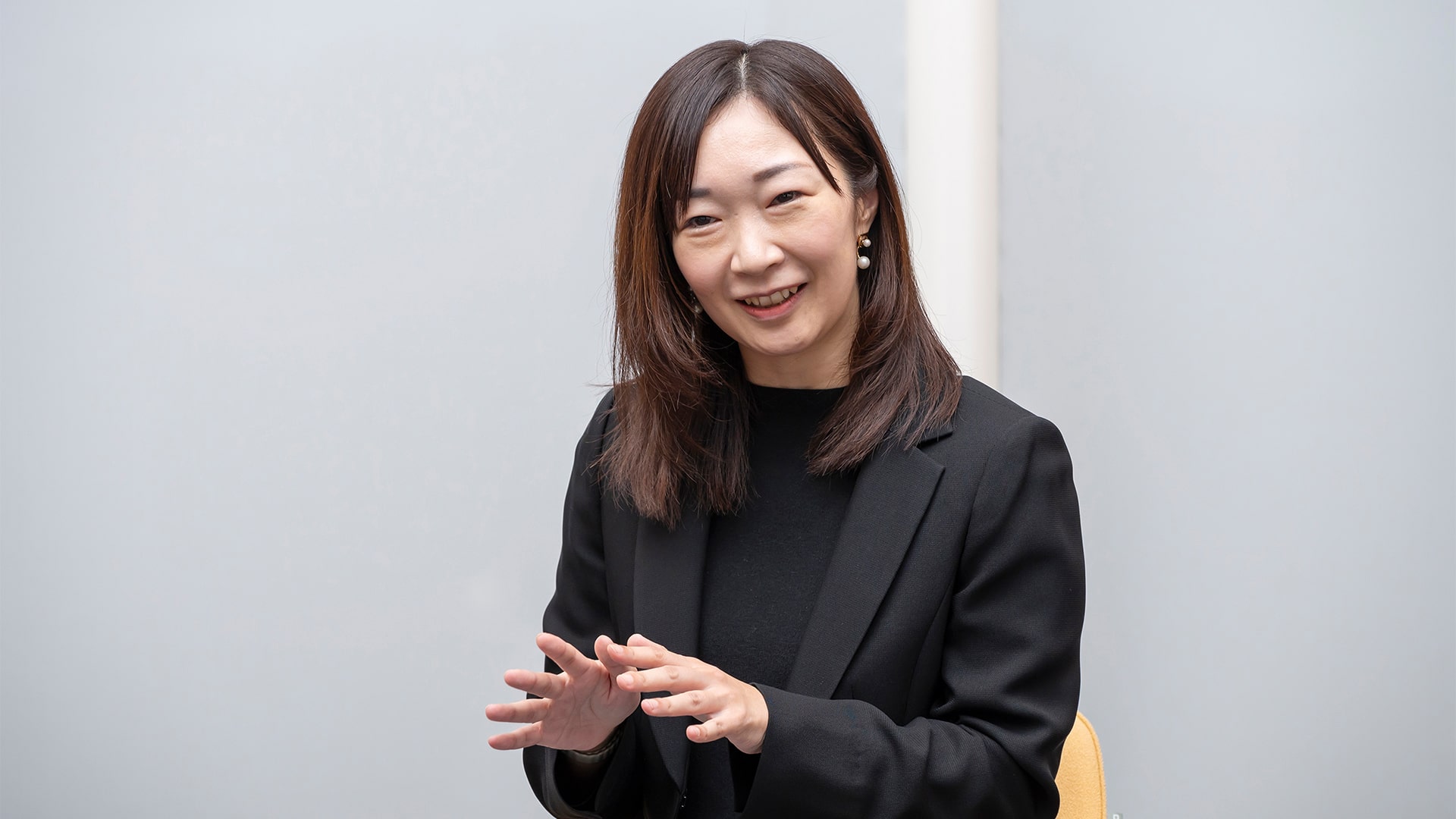
Fuji Right now I'm on secondment to RtM Japan, which is RtM International's Japanese arm. I work in the battery materials business department, where I'm primarily trading lithium, the demand for which is growing quite rapidly because of the global push to decarbonize. I joined MC in 2006, and after gaining experience in precious metals trade, mineral resource investments in Latin America and corporate communications, I took maternity and childcare leave. After I returned to work, my husband was then reassigned to the US and I needed to accompany him; however, I was able to take advantage of MC's scheme for re-employing staff due to spouse transfers,* so after five years away in the States, I returned to work in 2019, which is when I began my current job. *This system enables MC employees who are forced to leave due to their spouses' transfers to be rehired later on, provided that certain conditions are met.
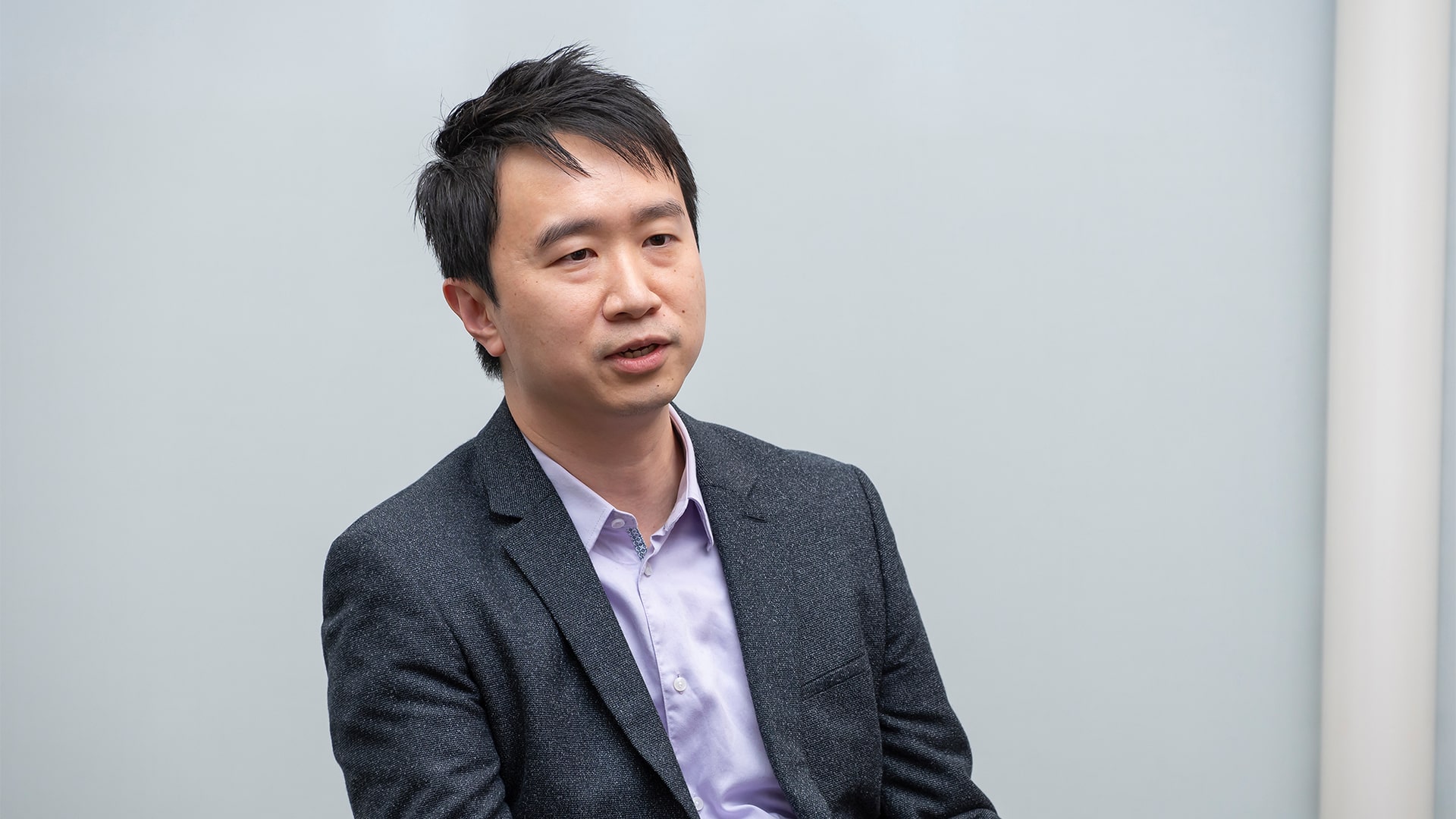
——Thank you both. How about you Mr. Deng? What do you do in the Business Incubation Unit?
Deng The Mineral Resources Group CEO office is responsible for unifying the group's strategies, and our unit has a variety of responsibilities, including identifying new technologies related to mining and metals and engaging with promising startups, whether through investments, collaborations, or management support. I've held my current position for about two and a half years, but I'm currently working with several other companies to network, assess investment opportunities, participate in their board meetings, and so on. I was a mid-career recruit at MC, joining the company in October of 2012. Before that, I was employed by a foreign investment bank, where I spent about five years doing M&A advisory work. Since arriving at MC, I've had a number of different assignments, including a seven-year posting in Brisbane, where I helped manage metallurgical coal assets, and experience here at MC head office in Tokyo, where I was involved in the management of iron-ore assets.
——You've each done a variety of different jobs, but I understand that the Mineral Resources Group's organizations all share the same mission, namely to help ensure that MC's customers have access to a stable supply of high-grade metals. Can you elaborate on that mission for me?
Kanno Sure. Our group's mission is essentially just that, to sustainably source and supply society with the mineral resources necessary to support its continued growth and development. In the past, our priority was to secure these resources for Japan, but in recent years we've shifted our focus from exclusively meeting domestic needs to also supporting growth in emerging economies, including places like India and Africa. In other words, nowadays we work not only for Japan, but for the world at large. Furthermore, when we talk about sustainable and stable supply, the obvious implication there is that we adjust to various demand-and-supply gaps and make good on global deliveries, but there is more to it than that. For example, we also need to be conscious of working conditions for those on the front lines of mining and manufacturing, as well as the environmental rehabilitation work that needs to be performed once the mines are shut down.
Awestruck by One of the World's Largest Mines
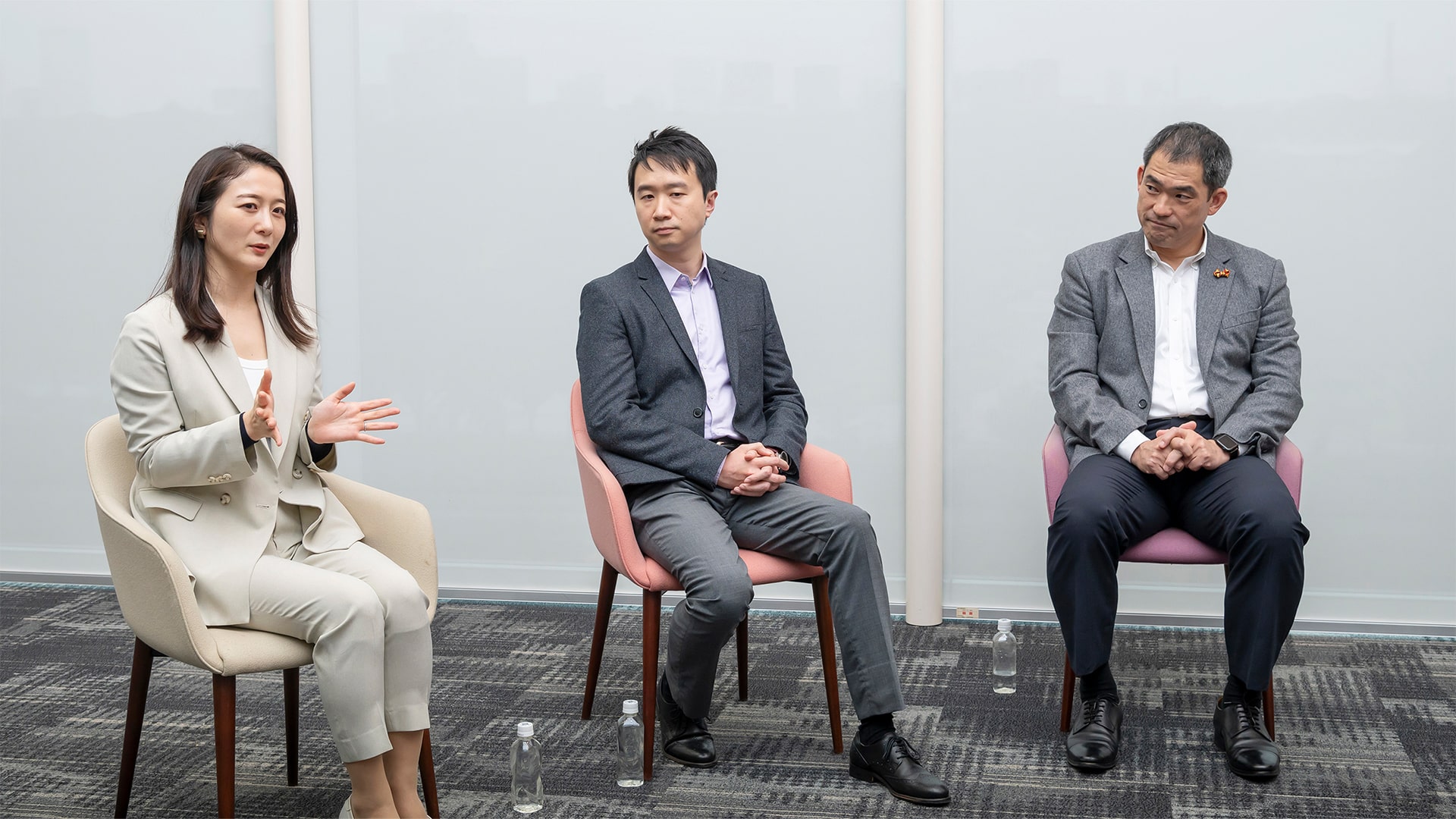
—— Compared to B-to-C products like food or automobiles, mineral resources seems an area that might be less likely to attract interest from shosha pros. Please explain what it is about this particular field that you find motivating or enjoyable.
Makanae When I was a student, I felt the same way, but it is hard for people to envision what a job in mineral resources would be like or where its appeal might be. I think that's because we're not really conscious of these resources during the course of our daily lives. When I speak with my junior colleagues today, I try to remind them of just how important mineral resources are. They're vital to so many things that we all use and tend to take for granted, including our computers, smartphones, cars, transmission lines, and so on. There's tremendous value in our supply-stability role, and it does motivate me to try to get my younger colleagues to appreciate that role just a little bit more. Kamachi During my university days, I did some research on cobalt-rich crusts, which are deep-water metallic layers found on the peripheries of submarine volcanoes. So I've always had an interest in mineral resources, but to tell the truth, when I first joined the company even I found myself wondering whether it might have been more enjoyable to work on things like food and wine (laughs). When I actually started doing the work though, I was reminded of how vital mineral resources are to our quality of life. For example, right now I'm in charge of copper, a metal that has an incredibly wide range of applications. Everyone knows that it's used for electrical wiring, but it's also a key material in trains, electric vehicles, household appliances like air conditioners and refrigerators, smartphones, medical devices, industrial robots and so on. Mine developments are the very source of this universal material, so getting to work on those projects is extremely rewarding. Two years ago, I was seconded to the Antamina copper mine in Peru. Until then, I'd been doing asset management work for the project from my desk in Tokyo, so the secondment was a great opportunity to get to the front lines of mining operations. I'll never forget that feeling, because even then I was keenly aware of how large and impactful MC's mineral resources businesses are.
——It's surprising to learn how many MC employees have such rich experience in international markets. Would you say that the opportunities to be posted outside Japan are part of the appeal of working for the Mineral Resources Group?
Fuji I'd agree with that. Actually, before I joined MC, I knew almost nothing about metals, but I requested a position in the Mineral Resources Group because I wanted to work overseas. Most of these resources are produced outside Japan, so every one of our group's organizations has connections with foreign markets. Deng Those opportunities are precisely why I left my previous job to join MC. Plus, I knew that getting a post in the Mineral Resources Group would up my chances of working overseas. Right now, more than a third of the group's roughly 350 employees have international experience. I think our group is a perfect fit for anyone who wants to test their abilities outside Japan, and the new skills they gain from working in mineral resources are bound to broaden their global career options in the years ahead.
Resource Development Synonymous with Urban Development? What is really gained from frontlines experience?
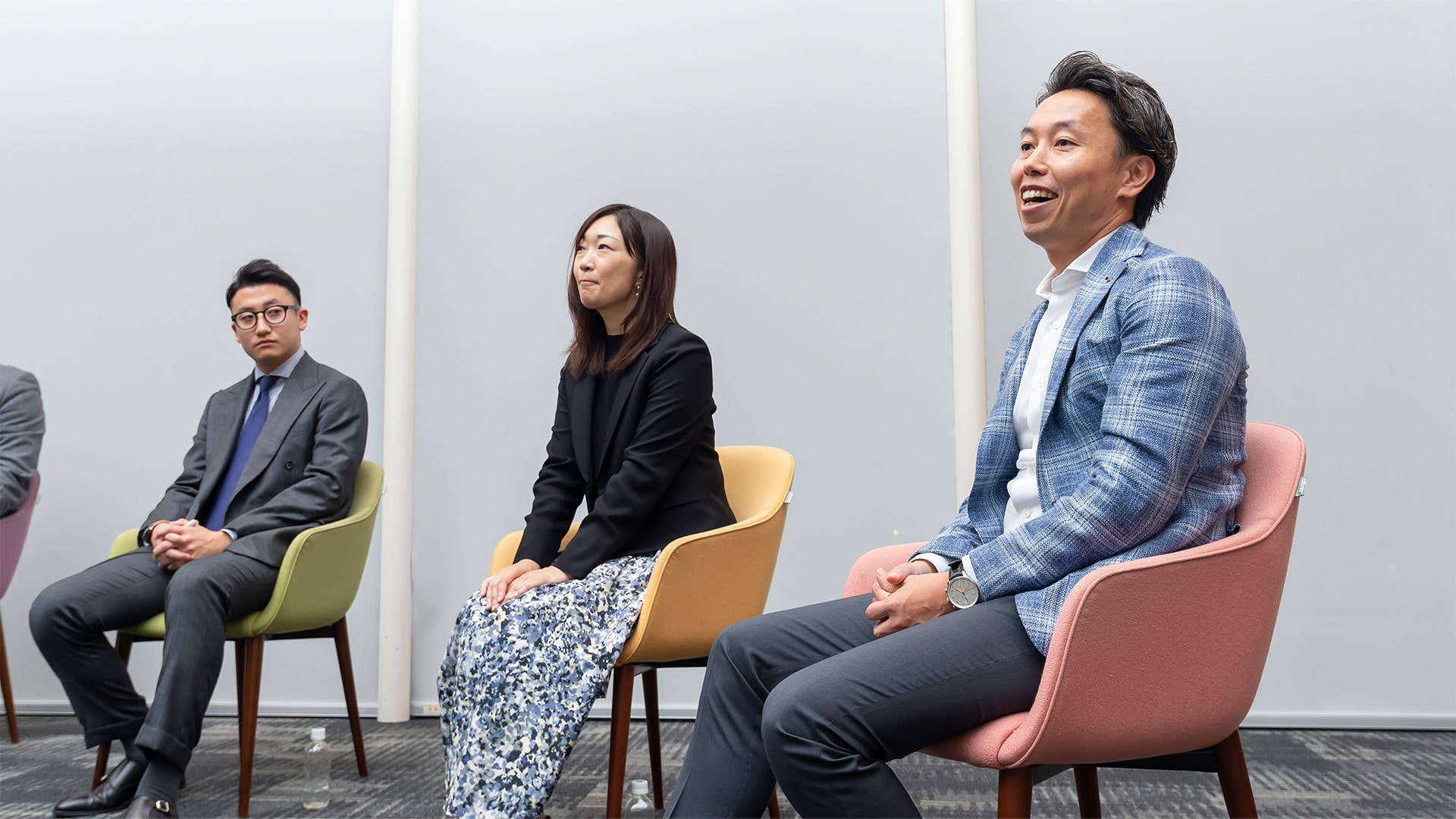
——Mine developments are sure to have massive impacts on their local communities and economies. How do you assess those impacts?
Inomata Mineral resource projects are partly invested in urban development. The regions in question are often undeveloped, remote lands that are probably difficult for those used to life in Japan to envision. The projects are conceived from the ground up, and those involved work with the native residents to build new communities and opportunities for employment and education. I think the true joy of resources business come from creating value in regions that were lacking it. Kamachi I agree. During our work on the Antamina mine in Peru, we had hearings with the local residents to better undersand their concerns, and we discussed what we could do to alleviate them. We ended up taking a variety of measures, including flood-control work near rivers that posed a sufficient risk of overflowing, construction of new facilities including a hospital and school, and recruitment of locals to work at the mine. Those responses visibly improved the local residents' quality of life. An elderly lady who lived in the area was extremely grateful to us for having made their lives easier. She was crying with joy when she told me how happy she was that her son had been given a place to work. It was very moving. When I saw and heard for myself what our resources business was bringing to the local community, it felt like just another reason to take pride in what I'm doing for a living. Inomata That significance is even greater in long-term projects that are run over several decades. I had a local truck driver tell me how proud he was to be following in both his father's and grandfather's footsteps, as both of them had also worked on the project. The jobs created by our mineral resource developments can span several generations and continue generating revenues for the local communities. The more I consider the value of this business, the prouder I feel to be a part of it.
——So would you say that this work is also a good fit for people who have an interest in tackling societal problems?
Kanno Absolutely. I think mineral resources businesses contribute greatly to regional societies. Unless you have the understanding and support of the local communities, you'll never be able to get a resource development project off the ground, so it's important that you take the time to build trust and balance everyone's interests earnestly and appropriately.
Empowered by Gratitude
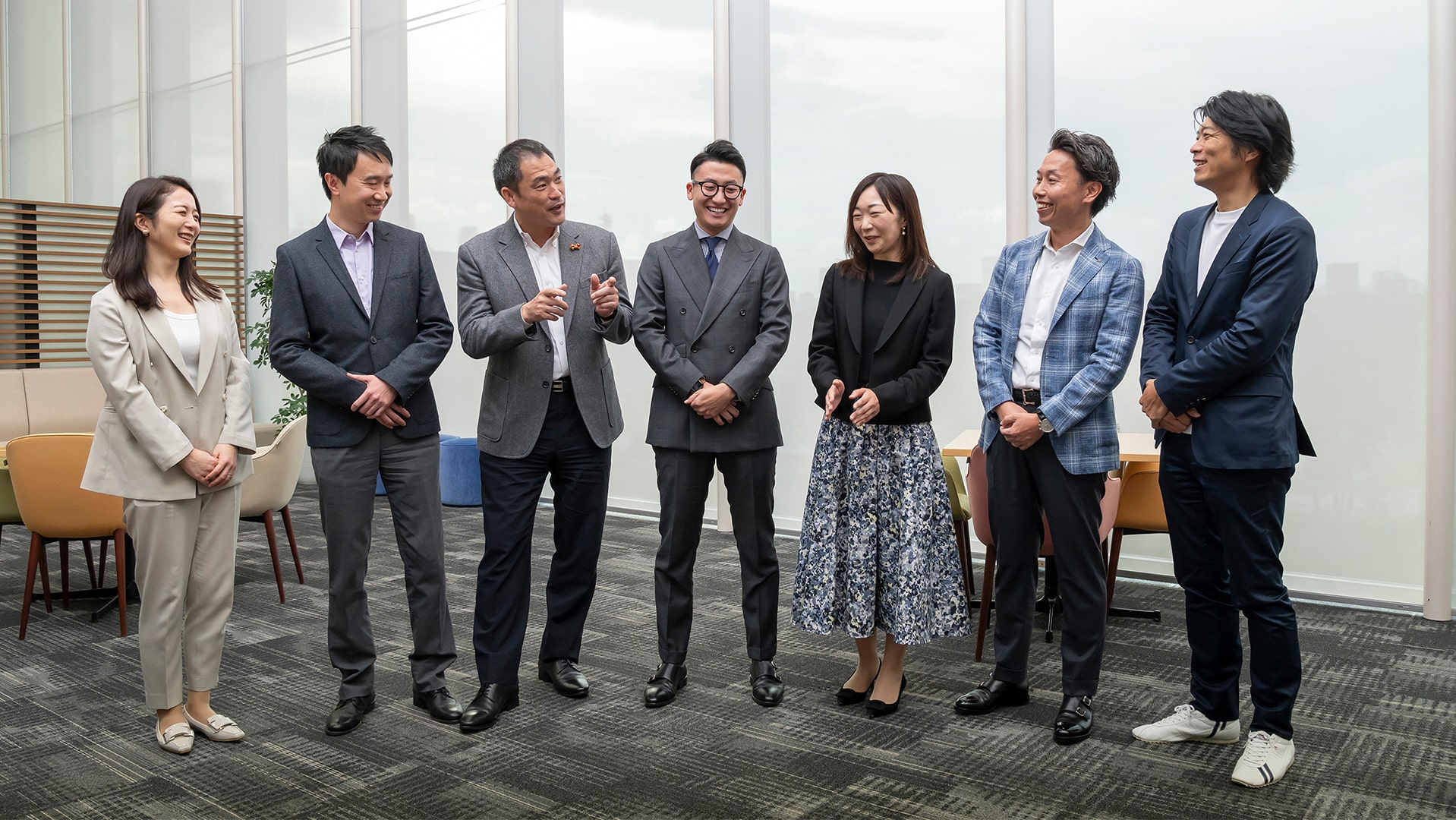
—— In terms of their languages, cultures, values and careers, your business partners are a diverse bunch. Has that created any problems for you? Can you give me some examples where overcoming those differences was particularly rewarding?
Inomata When we're posted overseas, we're often put in management-level positions at the subsidiaries or affiliates through which MC has invested in the projects in question. For example, when I was seconded to South Africa, I was only in my fourth year with MC. If I were at Tokyo head office, most of my colleagues would have looked at me and thought, "He's still just a young guy," but suddenly here I was in South Africa with subordinates and the title of "Senior Accountant." To make things even more challenging, I'd been thrust into a completely unfamiliar environment, both culturally and linguistically. Naturally, I had no choice but to do my best. I'm not sure if this is true or not, but I got the sense that my local colleagues were testing me to check whether I really could speak English or knew anything about finance (laughs). So I just gritted my teeth and studied as hard as I could, and as I made more and more efforts to absorb everything, I gradually started to get results. Eventually, my local colleagues and our partners began recognizing my value, and they told me that they were glad that I'd been sent to help them. I was delighted to hear that, and it made me feel that I had grown. Fuji During the pandemic, when we couldn't take business trips, we experienced some cross-cultural problems. I think they were the result of not being able to meet in person, and we were on the verge of the project falling through. Fortunately though, the staff at RtM's offices in both countries worked with our people at Tokyo to get everyone back on track. By being mindful of cultural differences and respectful in our language, we were able to communicate with one another patiently and eventually bridge our differences. When the issue was resolved, our partners said that they wanted to toast us. Even though we were speaking online, it was quite moving to see them onscreen raising a glass in appreciation of our work. Kanno That was a really challenging time. No matter what the project in question, the suppliers, customers, joint ventures, investors, and even those of us on the shosha side will all have our own positions and interests. Sometimes you just have to keep negotiating and battling, right up to the eleventh hour. Ideally, you want to build the kind of relationships where you always feel confident that you've chosen to join forces with the right people. Deng When investing in startups, you get a lot of opportunities to connect with experts in their respective fields and investors who've had a lot of success, both socially and economically. The other day, I attended a board meeting for a startup that's based overseas. All of the other board members were Americans who are at least 30 years older than me, the lot of them very influential fund managers. When the meeting was over and I returned to Japan, I received a number of messages from them thanking me for attending and providing their discussions with some helpful insight. They also told me that they looked forward to having back at their next board meeting. Frankly speaking, I was delighted to receive those messages. There will always be hardships, but when you get to work with exceptional partners who are worthy of your respect, the rewards are tremendous, and even more so when you know that you've provided them with your own, unique value.
- Part 3 will feature the second half of this roundtable discussion.
-
Building the Future with Diverse Talent vol.1
What is your current value?
Steeling Oneself on the Front Lines and Growing One's Sense of Mission -
Building the Future with Diverse Talent vol.2
Driven by Trust-based Relationships with Colleagues and Regional Communities
- Roundtable Discussion with Members of Mineral Resources Group (first half)- -
Building the Future with Diverse Talent vol.3
No Guaranteed Success in Business, but Diverse Experience Can Lead to Growth
- Roundtable Discussion with Members of Mineral Resources Group (Second half)-
